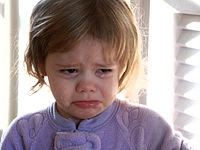With my love of Philadelphia, I was excited when I first heard about Always Sunny. The first season was perfect and, with the addition of Danny DeVito, the second season even blew the doors off the first. Somewhere though, the show lost it's way. I wouldn't dare say that the show jumped the shark (a phrase that holds no meaning anymore), but the show has definitely lost it's spark. Which is a shame, because last season I thought it was a step in the right direction. But now with the new season, they have resorted, once again, to senseless shock. The following is an article I wrote for
my school paper about last season's premiere. I post it now because I feel it perfectly illustrates what I think makes a good Always Sunny episode (plus I have too much homework to write anything new).
 Who seriously thought this was a good marketing poster?
Who seriously thought this was a good marketing poster?
The show that launched a million green men is back. It’s pretty much impossible to go to a sporting event anymore without seeing a person wearing a green spandex bodysuit. It’s all thanks to It's Always Sunny in Philadelphia.
The sixth season of the FX show premiered on Thursday, Sept. 16.
Ever since the show made its debut in 2005, it has been known for its edginess. This year’s premiere lived up to the standard of a show that’s referred to itself as “Seinfeld on crack.”
The first episode dealt was jammed pack with issues, such as gay marriage, slavery, suicide, the Bible and even the safety of eating food found in alleyways. However, it’s not the issues that make this show so much as its characters. It’s Always Sunny has been an ensemble-driven show since the start.
The show deal with worldly issues, but only on the personal level of the five main characters, referred to in the episode titles as “the gang.” Having them deal with their situations in their own patented way allows for the individual characters to shine and become fleshed out. Although they sometimes devolve to cartoonish levels – Charlie especially falls victim to this – their personalities still shine through each irreverent storyline.
The season premiere represented a return to the character-driven comedy that defined the series early in its run. At points in last year’s season, the shows’ plot lines became somewhat ridiculous. While it still made for good television, the crux of the show was lost in its willingness to venture into the absurd.
That’s why the relatively low-key premiere is a good sign for this season. The gang is still a bunch of selfish people looking to milk the system. But the comedy lies in the personalities, not the situation. That’s what makes “It’s Always Sunny” so lovable: not about issues being taken to their illogical extremes, but the characters and their chemistry.
The only issue with the first episode was the blatant product placement throughout. Paddy’s Pub, the bar owned by the gang, sells Coors; there is no need to constantly be reminded about it. When Mac runs into the bar with news about his transsexual ex-girlfriend, the viewer is assaulted with Coors logos. The rampant product placement and even the placement of a Subway restaurant is probably more the fault of the network than anything else, but that doesn’t excuse it.
Despite the advertising drawbacks, the first episode indicates what could be an excellent season for an always enjoyable show. It’s Always Sunny in Philadelphia airs Thursdays on FX at 10 p.m.
 And R.I.P. Steve Jobs
And R.I.P. Steve Jobs
 It's not a game it's an experience.
It's not a game it's an experience. Now that I'm older though, I can see what upset my mother so much.
Now that I'm older though, I can see what upset my mother so much. Jack Thompson, failed anti-video game activist.
Jack Thompson, failed anti-video game activist. Trying to survive against SWAT teams was part of the fun.
Trying to survive against SWAT teams was part of the fun. He was the better Dodo flier, I'll admit.
He was the better Dodo flier, I'll admit. Even the newer GTA games prefer you not to cheat.
Even the newer GTA games prefer you not to cheat.

















